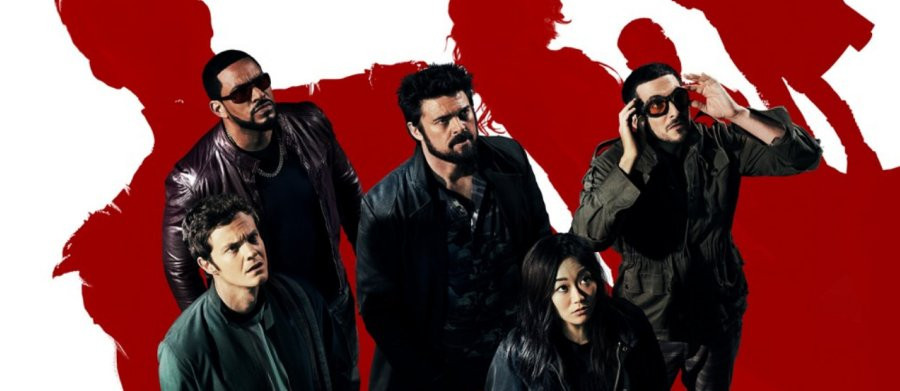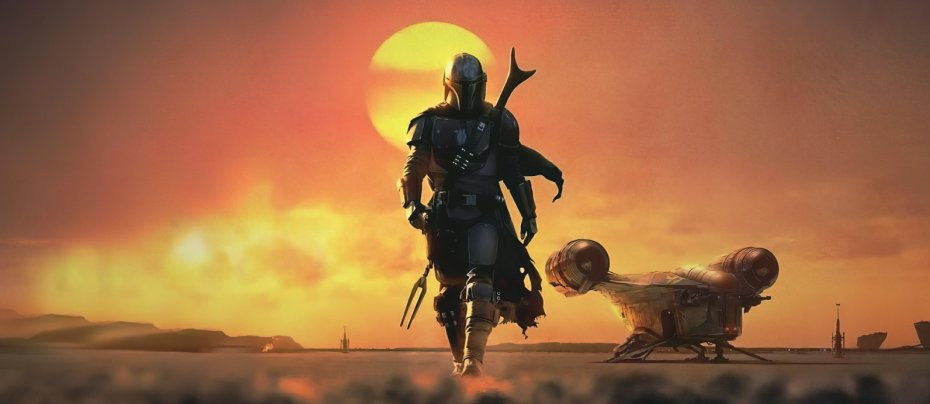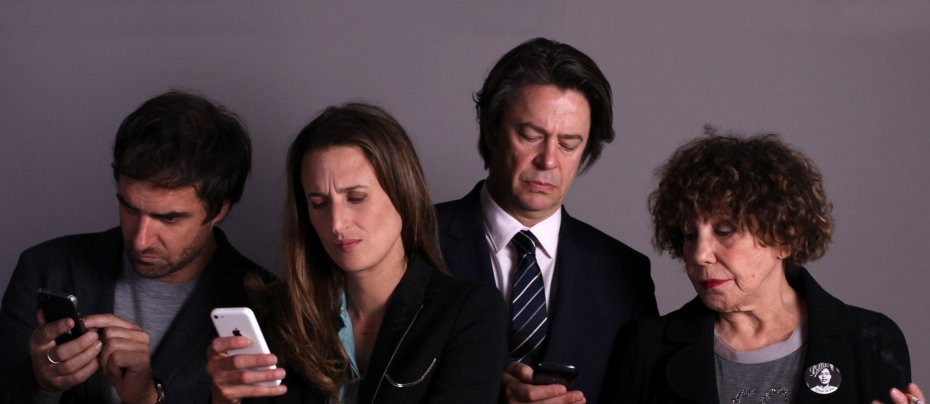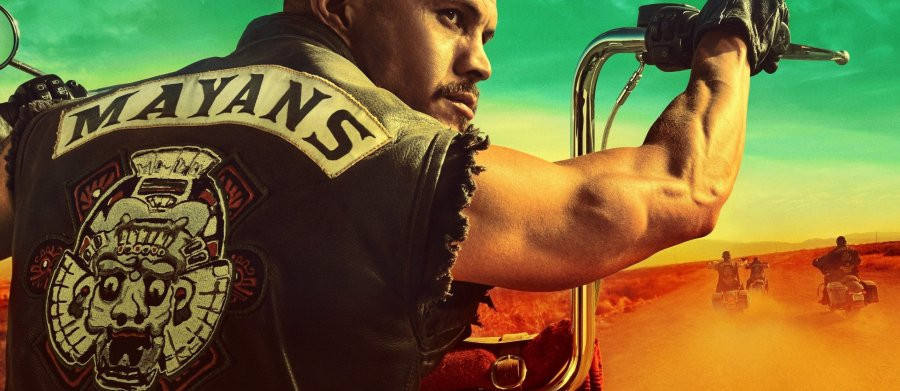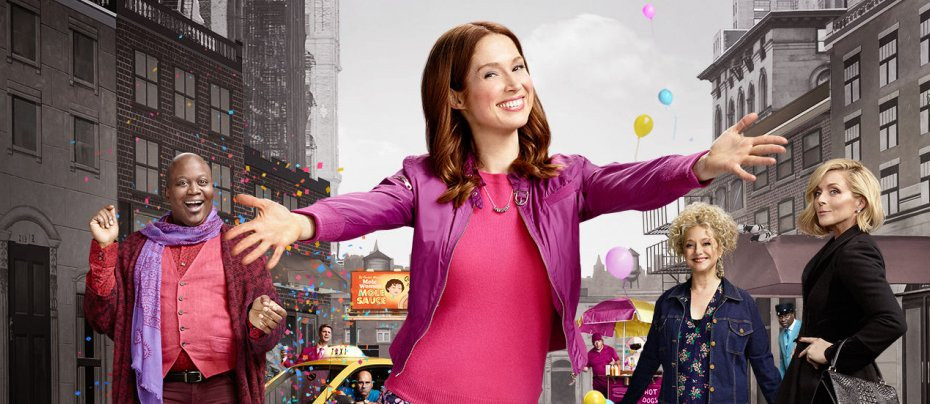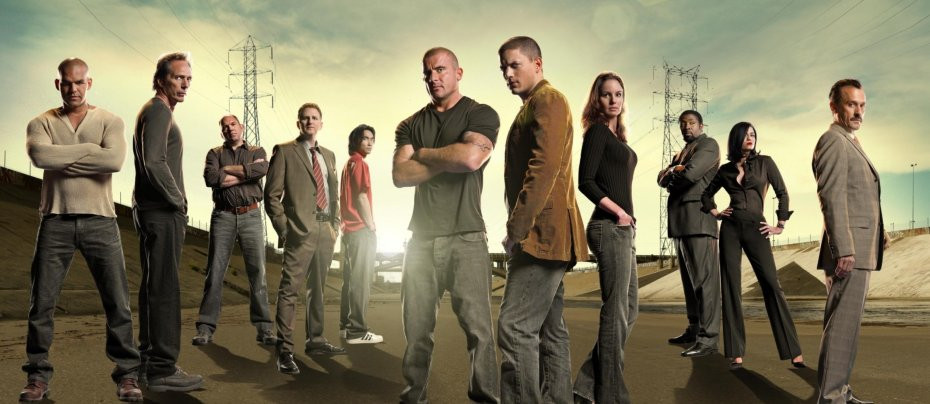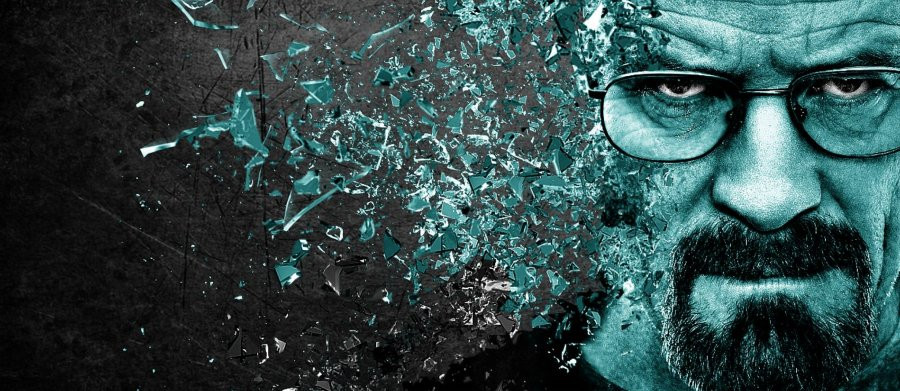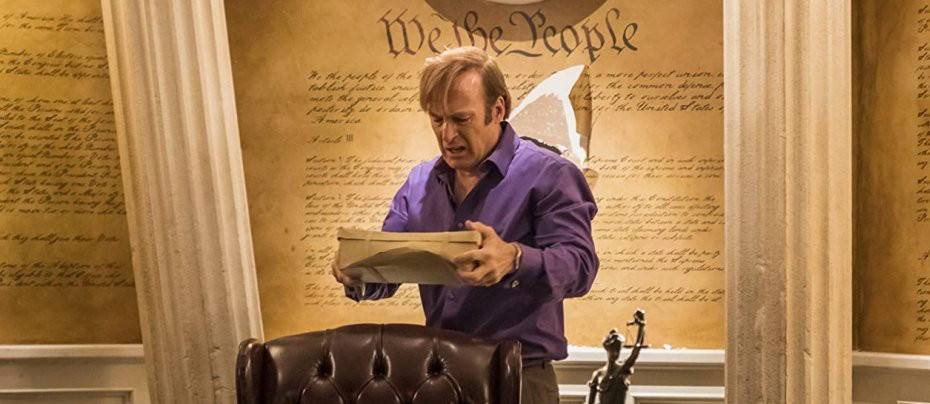
Better Call Saul
2015 - United States“it is the crime thriller element that brought in the viewers, at least at first, and in particular the opportunity to return to the world of Breaking Bad. In this respect, Better Call Saul really delivers”
Better Call Saul review by John Winterson Richards
In the feature film 'Scream 2' there is a classic self referential scene in which a cinema studies class debates sequels that were arguably better than the original, citing 'Aliens,' 'Terminator 2,' 'The Godfather Part II,' and 'The Empire Strikes Back' as possible examples. Whether they are actually better is a matter of opinion but the point is that they are all worthy of consideration as such. The same is true of Better Call Saul.
Whether Better Call Saul is a "spin off" from Breaking Bad, or a sequel or a prequel might itself provide the topic for hours of intense student debate. It follows the career of one of the most compelling of the compelling supporting characters introduced during the run of Breaking Bad to keep it fresh, dodgy fast-talking attorney "Saul Goodman." Separate but interweaving storylines expand on several other characters from that show, so it could be described as several "spin offs" in one. At the same time it is a "prequel" in that much of the story is told in "flashback" and a sequel in that this is intercut with "flash forwards" to the future. Eventually the "prequel" element catches up with the timeframe of Breaking Bad itself.
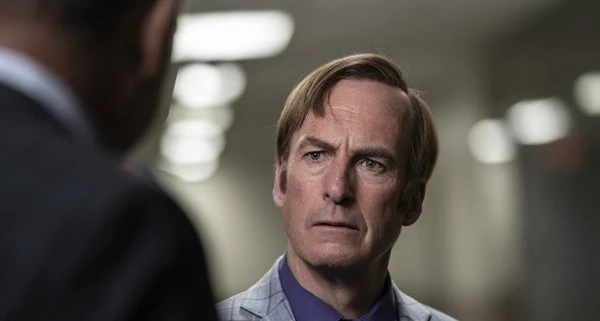
This convoluted structure could have gone very badly wrong - "flashbacks" and " flash forwards" are difficult techniques at the best of times - but superb literary craftsmanship ensures that Better Call Saul, like the eponymous Saul himself (Bob Odenkirk), usually just about gets away with it. The viewer is helped a lot by the fact that the "flash forward" sequences are filmed very distinctively in monochrome. This also seems to symbolise Saul's existence after the events of Breaking Bad, a grey, meaningless limbo completely cut off from his real life.
That real life is never less than entertaining as Saul in his prime talks himself into and out of one difficult situation after another. This is what we expect of the character we met in Breaking Bad. He is quick witted, apparently indefatigable, and Grand Master of his own disreputable little niche in the legal profession. Yet as his story unfolds we find a great poignancy that was kept hidden when he was a supporting character.
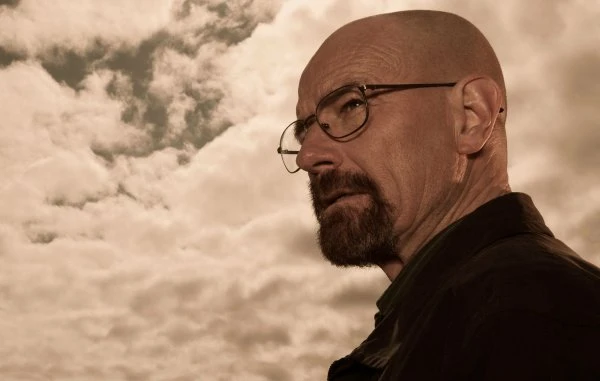
There is a fundamental difference in theme. Where the success of Breaking Bad is due in part to its being widely seen as emblematic of the crisis of the middle class in America, Better Call Saul is also about the aspirational element of the underclass trying to break in to the middle class and not finding the welcome it expected. The tragedy of Walter White in Breaking Bad is that he is a basically good man who broke bad. The tragedy of Jimmy McGill in Better Call Saul is that he is basically a bad man who aspires to be a, well, good man - pun probably intended.
The essence of tragedy is that the tragic hero is always destroyed by a single flaw. To what extent the failures of both Walter and Jimmy are due to the failings in their characters as opposed to circumstances is left for the viewer to decide. In Walter's case that failing is pride. While Jimmy, despite superficial appearances, is not without a certain arrogance of his own, in the end it is a strange self destructive urge, itself probably based on a deep self hatred, the opposite of pride, that keeps dragging by him back in just when he seems to have escaped.
It was revealed very soon after his introduction in Breaking Bad that "Saul Goodman" is not really Saul Goodman - in a brilliant line that would probably not be allowed only a few years later: indeed, an alternate derivation of his name is given in Better Call Saul but it is not convincing and it lacks the impact of the original, which showed there was at least a certain honesty in how openly unscrupulous the character was; whatever else "Saul Goodman" never pretended to be anything but a rogue in Breaking Bad.
The clever twist in Better Call Saul is that it forces us to question that, the one thing we think we know about Saul. The spine of the story is really the inner struggle between "Saul Goodman" and Jimmy McGill. Our protagonist is really always Jimmy and his main antagonist is not his brother or his brother's law partner or Walter White or any of the frightening drug dealers he encounters but "Saul" himself, the persona he eventually adopts in his work and which comes to dominate him.
Jimmy himself is no angel. He starts out as a low level grifter, a basically indolent man who nevertheless begins to enjoy a well executed con for its own sake. Yet he does not forfeit our sympathy because we understand his point of view, even if we cannot agree with it, after we are shown how he saw how his own honest, hardworking father was exploited mercilessly by others.
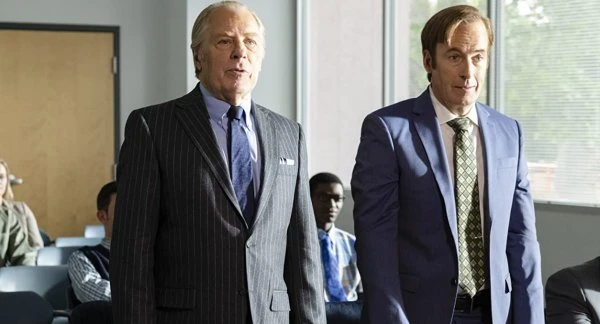
His life changes when, almost inevitably, he is arrested on very serious charges - which, ironically, are probably worse than he deserves. He is rescued by his brother, Chuck (Michael McKean), who, coming from the same humble background as Jimmy, has taken a very different course in life: through diligence, a fanatical dedication to the law, and obsessive attention to detail he has become one of the most respected attorneys in Albuquerque, New Mexico, and senior partner of a swanky law firm there.
His narrow escape serves as a wake up call for Jimmy. He is also genuinely grateful to Chuck and desperate to earn his respect. He accepts a humble post in the mail room of Chuck's firm and begins, secretly, to study law. Since he shares much of Chuck's intelligence and, at least when fully engaged, his work ethic, he obtains a law degree by correspondence from a less than prestigious University and passes the New Mexico Bar Exam. This is something that is still relatively easy to do in some American States, where there is an old tradition of the likes of Andrew Jackson and Abraham Lincoln basically deciding to call themselves lawyers with little in the way of formal training.
Assuming that this will finally win his brother's approval, Jimmy is genuinely shocked to discover that he could not have been more wrong. Chuck has invested most of his own ego in an elevated view of the law, the legal profession, and his own status within it. Indeed, he seems to care more for this status than for his brother, even if he retains a sincere affection for Jimmy. However, this affection is based on a definite sense of superiority over his scapegrace sibling. One suspects that, deep down, he rather likes having Jimmy to depend on him and to look down on. Jimmy's attempt to impress him by asserting his independence threatens his whole world, and he sees it as an insult to the profession to which he has dedicated his life.
Chuck works actively and deliberately to undermine Jimmy's fledgling legal career. When this becomes clear, Jimmy retaliates in kind. As usual with family disputes, things quickly get nasty: each brother knows exactly where to hit the other where it hurts. At the same time, Jimmy never ceases to care for Chuck, and perhaps hope that at some level beating him will force him to acknowledge his respect for him.
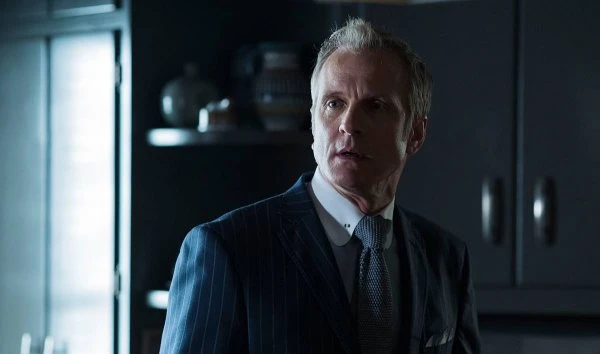
Since Jimmy still cannot hate his brother, his resentment is diverted, at least in part, towards Chuck's law partner, Howard (Patrick Fabian), initially on the pretext of a tragic misunderstanding of the whole situation on Jimmy's part. Indeed, Howard seems to want to go out of his way to help Jimmy on many occasions and is treated quite viciously in response.
The growing conflict brings out the worst in Jimmy. At first he was totally sincere in his desire to be a good attorney. However, as he keeps being blocked in his attempts to build a legitimate career, the old con man within begins to reassert himself. This is Saul Goodman.
At first Saul just cuts a few corners in a good cause - his redeeming feature throughout is that he cares for his clients and is determined to give them a good service. Yet as he is excluded from other opportunities, he is forced to develop a less respectable clientele. He becomes a criminal attorney in every sense.
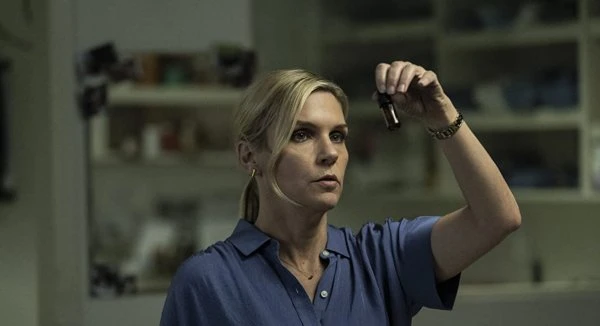
His sometime associate, sometime conscience, and sometime enabler is Kim Wexler (Rhea Seehorn), a high flying young attorney in Chuck and Howard's firm. Kim is totally out of Jimmy's league, both professionally and romantically, but they develop an unlikely friendship at an early stage. Only gradually does it become clear that they have a lot more in common than might appear. Kim was raised by her mother, a rootless alcoholic who resorted to petty crime. She has worked hard to rise from her unpromising beginnings. Like Jimmy, she qualifies as an attorney by studying in her own time while working - except she is sponsored by the firm and studies at the respected local University, not a correspondence college like Jimmy. Kim and Jimmy are therefore bound by a sense that they are outsiders - and remain so in spite of all their impressive accomplishments.
The drifter in Kim is also attracted by the grifter in Jimmy. They sometimes carry out some low level cons together, just for the fun of it. Kim turns out to be a natural, her coolness under pressure in the Court Room transferring easily to criminal activity. At the same time the attitudes and skills they develop as grifters begin to play an ever greater role in their legal careers - you can add your own punchline about lawyers and con artists.
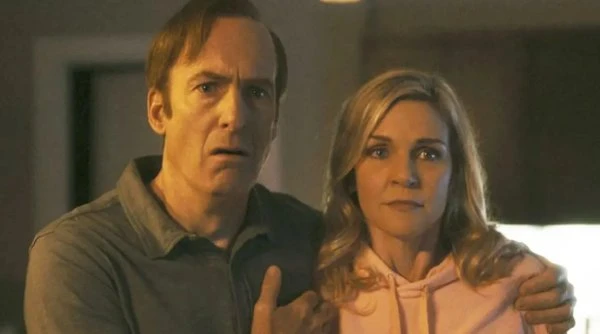
There are times when Kim seems to be turning into Jimmy, even into Saul. There are moments when Jimmy is disturbed by this. Jimmy has few scruples, but he is not usually malicious. Kim can be frighteningly remorseless. Yet somewhere along the line Kim has developed a conscience. She sometimes feels guilt and has an urge to do 'pro bono' work. She is not predictable. She is right when she says that she and Jimmy bring out the worst in each other, but perhaps they also bring out of the best in each other. In the end they destroy all they build together, but Jimmy at least could never have built his part in the first place without her - even if one cannot help wondering if she might have been a great success if she never met him.
The social drama of the mutual misunderstandings of these four flawed individuals, Jimmy/Saul, Kim, Chuck, and Howard, rather than the crime thriller element with the drug dealers, is the real heart of Better Call Saul.
Yet it is the crime thriller element that brought in the viewers, at least at first, and in particular the opportunity to return to the world of Breaking Bad. In this respect, Better Call Saul really delivers. Playing "Spot the Breaking Bad Reference is half the fun for hard core fans. Some of the references are pretty obscure and detailed. There is a lot of "foreshadowing" and, at the same time, great care has obviously been taken to ensure there are no contradictions between events in Better Call Saul and the story in Breaking Bad. It is particularly clever how considerable effort is made to ensure certain characters do not meet before they are destined to do so in Breaking Bad. No doubt there are people out there on the Internet who are listing lapses and inconsistencies, but this reviewer never noticed them, despite keeping a deliberate eye out for them.
It should be stressed that it is quite possible to enjoy Better Call Saul without any knowledge of Breaking Bad whatsoever. The show has been designed with great skill to be watched either way, with or without having watched Breaking Bad first. There is even a case for watching Better Call Saul before Breaking Bad - it would still make sense. In the end, however, there is no doubt that there is so much more to appreciate in Better Call Saul if one has watched Breaking Bad first, so they are best viewed in the order they were made.
There are a large number of cameos and guest appearances by characters from Breaking Bad, including Walter White (Bryan Cranston) himself. Some are easy to miss if one is not looking.
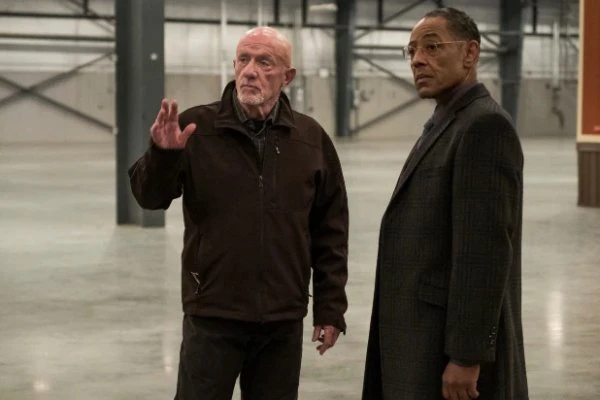
Best of all are extended appearances by two favourites from Breaking Bad who, under other circumstances, might have had credible "spin offs" of their own. As it is, Better Call Saul gives us the welcome opportunity to find out more about Mike Ehrmantraut and Gus Fring.
Security expert Mike (Jonathan Banks) just gets cooler and cooler. It is in Better Call Saul that he is given some of his best scenes ever, including an instant classic in which he brings a pimento sandwich to a gunfight - and wins. Banks cannot help looking older than he did when he made Breaking Bad and a man of his age should not be dangerous, but he never ceases to be the quietly dominant alpha male, even when we encounter him unexpectedly in a menial job.
Serial entrepreneur Fring (Giancarlo Esposito) is almost the total opposite of the dominant alpha, but he shares with Mike a meticulous attention to detail, an obsession with advanced preparation, and the ability to remain calm under pressure. He is at his best when called upon to balance his responsibilities as a restaurant owner with his other vocation as a major player in illegal narcotics. He always comes off as a responsible employer (a series of mock training videos for his fried chicken franchise are well worth a look on 'YouTube'), even if he remains as emotionally distant as ever. He forms a truly formidable partnership with Mike, but we also get to see that there are fundamental differences between them and things do not always run smoothly when Gus wants things done that go against Mike's personal code. It is satisfying to see how aspects of his operation, like his giant laboratory, did not simply spring out of nowhere.
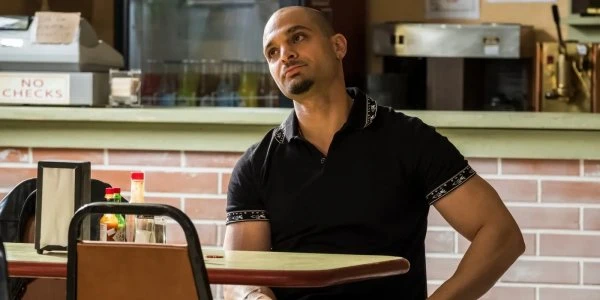
We are also introduced to some intriguing new characters who did not appear in Breaking Bad. Nacho Varga (Michael Mando) is a very ambitious young operative in the Juarez Cartel and a character towards whom we go through many changes of emotion: he can be disagreeable, clever, ruthless, sympathetic, and even heroic, and he is given an arc worthy of his complexity. Similarly, Lalo Salamanca (Tony Dalton) seems to be too charming to be part of the appalling Salamanca clan - Tuco, twins Leonel and Marco, and Hector (Mark Margolis expressing more with his eyes when immobilised than most actors can with their voices and whole bodies) all make appearances - but Lalo turns out to be the most intimidating of them all, a wholly credible portrait of that rare beast, a true high functioning psychopath. Incidentally, the in-joke is that Salamanca is Spain's leading University - it is a fair bet that none of these Salamancas studied there.
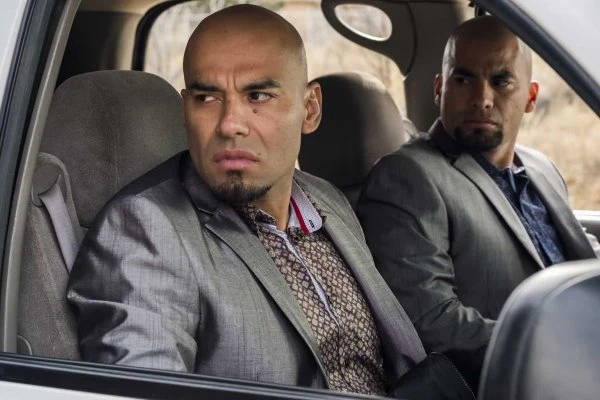
It shows the attention to detail that, although the "spin off" was not planned at that point, both Nacho (called by his proper Christian name, Ignacio) and Lalo were referenced in the dialogue in the episode of Breaking Bad that introduced Saul Goodman.
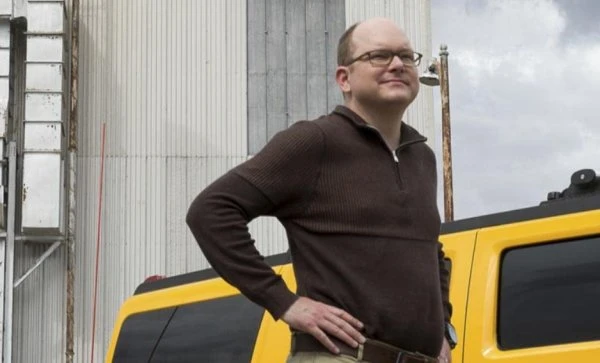
Mark Proksch (the wonderful Colin the Energy Vampire from the television version of What We Do in the Shadows is hilarious as a would be "player" whose only sensible decision is hiring Mike as his bodyguard. Veteran Barry Corbin (Northern Exposure) brings dignity as a man being driven out of his home by a bank which has hired Kim as its Counsel. Other familiar faces include Ed Begley Jr (St Elsewhere), Rex Linn (CSI:Miami), Ann Cusack (The Boys), Bonnie Bartlett (St Elsewhere), Kevin Sussman (The Big Bang Theory), and, on particularly fine form, comedienne Carol Burnett, as well as Bryan Cranston, Aaron Paul, Dean Norris, Stephen Michael Quezada, Steven Bauer, Laura Fraser, Betsy Brandt, Jim Beaver, and the late, great Robert Forster, among many others, reprising their roles from 'Breaking Bad.'
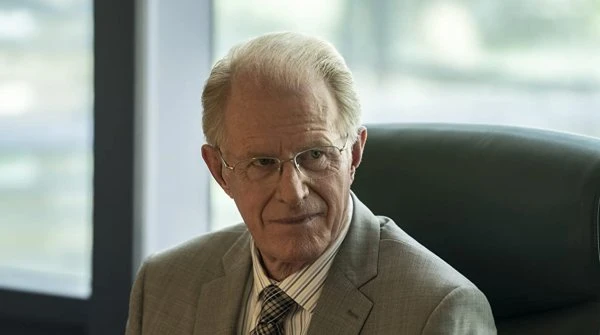
Given the strength in depth of this cast, the acting is of a consistently high calibre. Odenkirk proves he can hold his own as a leading man, investing Jimmy/Saul with an unexpected dignity. While it is no surprise that Banks and Esposito steal their scenes, it is probably Seehorn, McKean, Fabian, and Mando who stick in the mind most after the credits finish. McKean, best known for his comedy roles with the 'This Is Spinal Tap' crowd, excels in a tragic role, as do Fabian and Mando. However, it is Seehorn who offers us by far the most fascinating character beneath a brittle surface of Grace Kelly ice.
In sharp contrast with Breaking Bad, the pace is often very slow. Showrunners Vince Gilligan and Peter Gould are confident of the attention of their viewers, so they take their time to tell the story as they want to tell it. This is epitomised by a highly entertaining Court room scene in the opening episode which sets the tone for much that follows.
It is nevertheless perhaps surprising, given Saul's comedy relief function in Breaking Bad, that Better Call Saul is still definitely very much a tragedy with comic moments rather than a comedy with tragic moments. Some of those comic moments are very funny indeed but they serve only to emphasise that most of the principals are on a path to self destruction. It is a combination Shakespeare used to great effect.
The photography is self consciously "arty." The scenes set at night in Arizona cityscapes are particularly evocative, and one gets a fine sense of how a soulless shopping mall becomes Saul's personal purgatory.
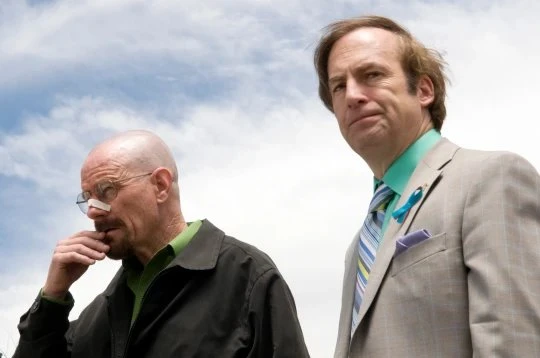
Light spoiler alert - it is impossible to discuss the conclusion without a sense of its broad ethos, even if we try to avoid the actual facts.
Many people liked the ending very much and might object to the observation that the story loses a lot of energy in the second part of the final season after all but two of the major character arcs have been wrapped up. Well it cannot be denied that it does.
One kept hoping that Jimmy/Saul had one more big play up his sleeve and there is a great moment in the final episode when it looks like he does. It does not last. The whole thing ends on a very downbeat note. This was predictable. Americans are a moralistic people compared with cynical Britons and Europeans, and they have greater respect for their formal system. They want to believe that justice is done. Yet some of the sentences handed down by American courts are truly absurd - "Life plus so many hundred years" - and, coming full circle back to the beginning when Chuck rescued him, Jimmy faces a worse punishment than he deserves. There is no sense of redemption about the final situation. When Jimmy has a rare moment of unselfishness, it is no more than a sentimental impulse which he will doubtless come to regret as the consequences sink in.
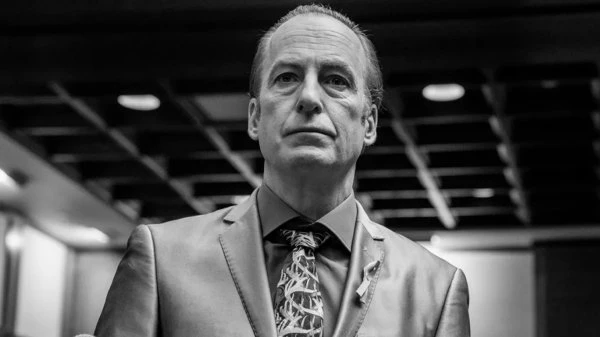
The depressing ending does at least have the merit of accuracy. It is indeed almost invariably true that Crime Does Not Pay. The Criminal Mastermind who has never been caught is a Hollywood invention. Major crimes usually end in convictions, often of the right people, and criminal careers usually end in long imprisonment or premature death. Most criminals become criminals because they are not very bright. Those who are either tend to fall victim to the faults in their characters that led them to crime in the first place, like Jimmy/Saul and Walter White, or, if they manage to maintain self control, like Mike and Gus, to the inescapable fact that a life of crime means having to deal with the unpredictability of other criminals.
This is not a bad moral of the story, even if it feels slightly out of place in an otherwise subversive show. Less edifying is the implication that self improvement is pointless because your worst character traits will always come out: Jimmy was rescued from a seedy existence by Chuck but could not escape a seedy end because he remained a seedy individual. This is the essence of tragedy, that character is destiny, but we still need the hope, even if it may be illusory, that we can change, inwardly and outwardly. Better Call Saul ultimately denies its protagonist, and the audience, that hope, and is perhaps the poorer for it.
Seen this show? How do you rate it?
Seen this show? How do you rate it?
Published on August 24th, 2022. Written by John Winterson Richards for Television Heaven.


